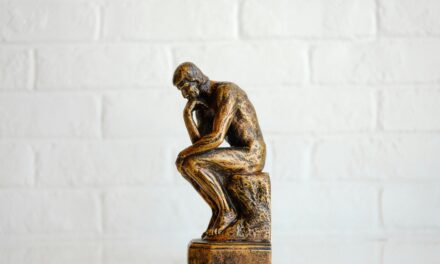- M. Nijhof
With the world in search of a COVID-19 vaccine, questions about the desirability of intellectual property rights in medical research re-enter the public debate. Intellectual property creates knowledge that can be used exclusively. Consequentially, important domains of scientific activity are constrained by industrial secrets or patents.[1] This article wonders whether, in times of crisis, the Intellectual Property Model in medical research should be replaced by an Open Source Model, allowing unimpeded access to medical knowledge.
The Debate
When it comes to medical science, expressions of discontent with intellectual property are not new. The Philosopher of Science, James Robert Brown, for example, states that nowadays medical research is falsely directed towards patentable solutions. Exclusive control of intellectual property generates royalties, providing (private) investors with a return on their capital. As a result, non-patentable solutions like diet, environmental factors or exercise are left out. [2]
In contrast, proponents of intellectual property in medical research claim that intellectual property rights form an economic stimulus for carrying out research. The German philosopher Martin Carrier, for example, argues that without patent protection there would be no economic incentive for (private) research. According to Carrier, intellectual property generates competition among companies which stimulates reciprocal control and epistemic integrity.[3]
While both these lines of argument are valuable, in times of global crisis like we experience today the real issue with intellectual property is patent secrecy.
Patent Secrecy in Intellectual Property
Intellectual property obstructs public access to knowledge, attributing exclusive control to its creator. When scientific discoveries are kept secret, new information cannot be employed in other, related research projects. Nor can it be tested and used as critically as it would be if research were more widely known. With the world hurting from the consequences of COVID-19, the Intellectual Property Model is under attack. People have claimed that it would be highly immoral to keep findings regarding a vaccine behind closed doors.[4] An Open Source Model, critics claim, could potentially save lives. But is this true? I now turn to the Open Source Model to explain that, from a legal point of view, open source may not be all that desirable.
The Open Source Model
In open source, a community of individuals contributes to a body of knowledge, setting up peer-review systems for quality control and then nurturing and nourishing that body of knowledge.[5] The main feature of open source is open access to information. Open source thrives on the voluntary sharing of research, just for the sake of knowledge being used and enhanced by others.[6] Open source differs from the Intellectual Property Model in two significant ways. First, open source can be viewed as an alternative to traditional intellectual property incentives; while intellectual property law is based on the idea that only economic incentives can motivate creators, open source relies on the good of the community and creative ambition.[7] Second, open source has the obvious benefit of making all information accessible. In the open source community, knowledge is generally accessible to be used, distributed and modified by all.
The question is whether, in times of crisis, the Open Source Model would be a better option than the Intellectual Property Model.
The Open Source Model As Alternative for Intellectual Property
Even though the Open Source Model may seem like the obvious solution to undesired patent secrecy, from a legal point of view; it is not as distinct from intellectual property as one might think. Both models, namely, function through the same licensing system.[8]
In an Open Source Model, a contribution to the original source code normally takes place through a license agreement. A so called ‘contributor’s license agreement’ can require any contribution to meet certain standards. A contributor’s license can for example require an unrestricted and royalty free submission.[9] This license agreement proposes property. After all, only through the legal model of property can requirements for using a certain creation find validity. It is thus through license agreements that private property enters the Open Source Model. In open source, the agreement between the creator, user and licensor effectively builds on property.[10]
From a moral point of view, the call for open source is thus completely understandable. Legal question however, can help us to understand that while open source may sound like a better solution, its workings and possible traps are dangerously close to the ones we currently experience in the Intellectual Property Model.
Conclusion
Intellectual property is not absent in the Open Source Model. Through a licensing system, regulation and property does play an important part in the open source community. While the call for open access to knowledge in times of crisis is perfectly understandable, the Open Source Model may not be the right solution. Since it builds on private property assumptions it may become subject to the exact same pitfalls that we are currently experiencing in the private property system.
Philosopher’s note: Foucault argued that the concept of author “constitutes a privileged moment of individualization in the history of ideas”.[11] This romantic conception of “author” as an individual creator definitely has a certain appeal. The question is however, whether it is correct. Creativity, and research as a result of it, is almost never achieved alone. Every discovery, every publication, thrives on prior research. In modern times, a substantial amount of (technological) innovation is the result of collaborative research.[12] Not only is this expressed through the large scale collaborations that define present day research, the ideas themselves, always originate from other ideas.
Contemporary intellectual property law was designed under the assumption that creativity is individualistic in nature.[13] The law’s intention to secure property rights centralises creativity even when the research is necessarily collective.[14] As a result, property law cannot regard the cultural value of serial collaborations.[15]Open source research does not manage to paint a more accurate image of creation either. Through license agreements, knowledge is still perceived as individual (centralised) property. Every researcher may dream of a unique, individual creation; the reality of research is often a different one. The real challenge for combatting undesired secrecy in medical research may therefore be, to find a system that manages to address and paint a more throughout vision of what it means to create.
Bibliography
Brown, J.R. “Politics, Method, and Medical Research”, Philosophy of Science (75) 2008.
Carrier, M. ‘Science in the grip of the economy’ in The challenge of the Social and the Pressure of Practice. Edited University of Pittsburgh Press. 2008.
Contreras e.a. “COVID-19: save lives with open intellectual-property licenses”. In Nature international journal of science, 2020.
Foucault, M. ‘What is an author?”, in Harari Josuô V. (ed.). “Textual strategies: Perspectives in post- structuralist criticism”, Cornel University Press (1979).
Thiruthy, N. ‘Open source- Is it an alternative to intellectual property?’, The Journal of World Intellectual Property, 2017.
[1]Carrier, M. ‘Science in the grip of the economy’ in The challenge of the Social and the Pressure of Practice. Edited University of Pittsburgh Press. 2008, p.220.
[2]Brown, J.R. “Politics, Method, and Medical Research”, Philosophy of Science (75) 2008.
[3]Carrier, idem.
[4] See for example Contreras e.a. “COVID-19: save lives with openintellectual-property licenses”. In Nature, 2020.
[5] Thiruthy, N. ‘Open source- Is it an alternative to intellectual property?’, The Journal of World Intellectual Property, 2 2017, p.69.
[6] Idem, p.69.
[7] Idem, p.69.
[8] See also Thiruthy, 2017.
[9] Idem, p.73.
[10] As Thiruthy puts it: “The social relationship that open source proposes between the creator, the licensor and the user is fundamentally based on property”.
[11] Foucault, M. ‘What is an author?”, in Harari Josuô V. (ed.). “Textual strategies: Perspectives in post- structuralist criticism”, Cornel University Press 1979, p.141.
[12]Thiruthy, 2017, p.69.
[13]Idem, p.70.
[14]Idem, p.70.
[15]Idem, p.70.







